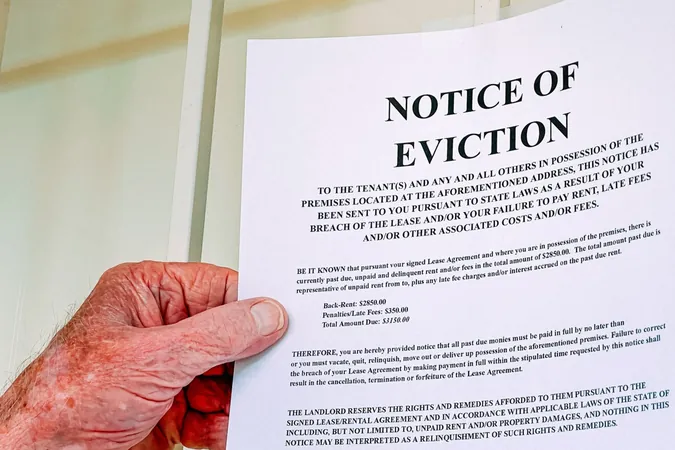
Shocking Discovery: Anti-Obesity Drugs Linked to Rising Food Waste Among Users!
2024-11-21
Author: Noah
Shocking Discovery: Anti-Obesity Drugs Linked to Rising Food Waste Among Users!
A recent study has revealed a surprising correlation between the use of anti-obesity drugs and an alarming increase in food waste among U.S. adults. Researchers at The Ohio State University found that 25% of users reported tossing more food than ever after starting medications like Ozempic, which are designed to help combat obesity by regulating hormones that affect appetite and digestion.
In a survey involving 505 individuals currently on GLP-1 medications, the findings indicated that while 61% disagreed with the statement about increased food waste, those experiencing nausea—one of the common side effects—were more inclined to admit to wasting food. Interestingly, the longer participants had been on the medication and the more vegetables they included in their diet, the less food waste they reported.
Initial Insights Into Consumer Behavior
This study serves as a vital first step in understanding the broader implications of these increasingly popular medications on food consumption and waste at both national and global levels. "Our aim was to explore how these medications influence not just personal health but also consumer behavior regarding food preferences," said Brian Roe, a professor in agricultural economics. "Initial results suggest that with proper guidance, patients may minimize waste as they adapt to their new eating habits."
The relationship between these medications and food waste raises critical questions about sustainability. Approximately one-third of food produced in the United States is wasted, and factors such as personal dietary changes could exacerbate this issue.
The Bigger Picture: Economic and Environmental Impact
As of Spring 2023, around 6% of U.S. adults reported using GLP-1 agonists, which are primarily prescribed for type 2 diabetes and obesity. Common varieties include semaglutide (Ozempic, Rybelsus, Wegovy) and terzepatide (Mounjaro). Participants in the study, mostly insured and averaging a 20% weight loss after one year on medication, displayed notable dietary shifts, including increased consumption of produce and healthy fats, while reducing their intake of carbs and sweets.
The research team is now looking into how these medications impact household spending on groceries, posing a significant follow-up inquiry into the interplay of health costs and food economics. "While some patients might save money on food, whether these savings can offset the cost of their medication remains uncertain," Roe remarked.
A Call for Further Research
To truly grasp the societal and environmental ramifications of these medications, further studies are needed. Encouragingly, existing research suggests that reducing food waste at a population level not only lowers energy costs but can also alleviate pressure on land and water resources while cutting greenhouse gas emissions. Yet, with the rollout of these anti-obesity drugs being relatively recent, comprehensive data remains scarce.
"There is no doubt that these medications could play a transformative role in both public health and environmental sustainability," Roe concluded. The findings yield numerous questions about the future of food systems and health care, underscoring the urgency for continued exploration in this arena.
Such developments prompt us all to reflect on our consumption habits and the far-reaching impact of pharmaceuticals on our daily lives and the planet. As anti-obesity treatments gain traction, how will they shape our eating behaviors, waste patterns, and even the environmental footprint of our food systems? Keep an eye out for more updates as research evolves!









 Brasil (PT)
Brasil (PT)
 Canada (EN)
Canada (EN)
 Chile (ES)
Chile (ES)
 España (ES)
España (ES)
 France (FR)
France (FR)
 Hong Kong (EN)
Hong Kong (EN)
 Italia (IT)
Italia (IT)
 日本 (JA)
日本 (JA)
 Magyarország (HU)
Magyarország (HU)
 Norge (NO)
Norge (NO)
 Polska (PL)
Polska (PL)
 Schweiz (DE)
Schweiz (DE)
 Singapore (EN)
Singapore (EN)
 Sverige (SV)
Sverige (SV)
 Suomi (FI)
Suomi (FI)
 Türkiye (TR)
Türkiye (TR)